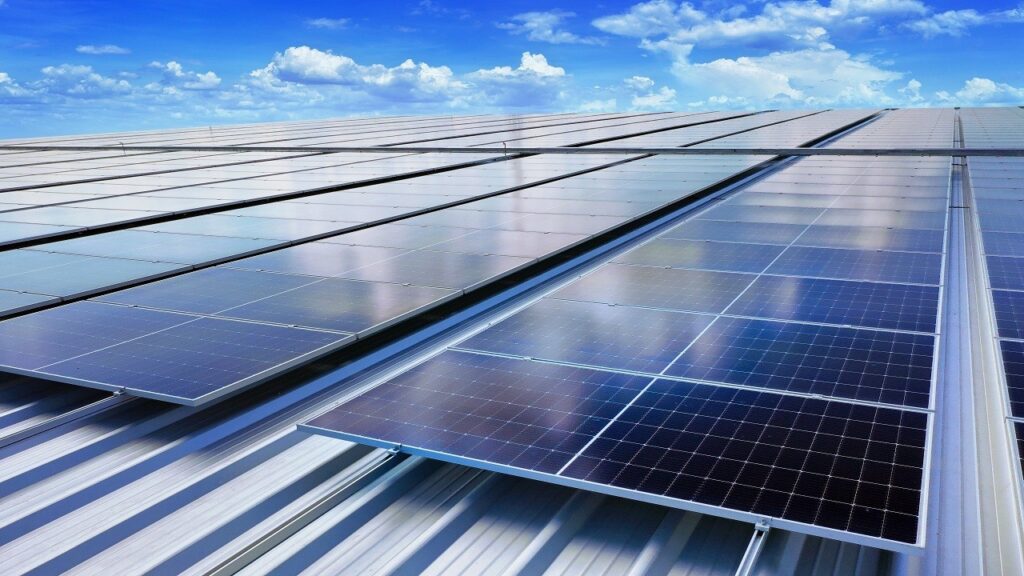Navigating Rooftop Solar Regulations in India: A Comprehensive Guide for Buyers
- By user

As India makes significant strides towards embracing sustainable energy solutions, rooftop solar installations have emerged as a pivotal choice for environmentally conscious individuals and businesses. However, navigating the intricate web of regulations, permits, and incentives is essential for a seamless transition of homes and businesses to rooftop solar energy. In this comprehensive guide, we will delve into the key considerations that buyers in India need to be aware of to ensure a successful rooftop solar journey.
Understanding Local Regulations and Policies
India, with its diverse states and union territories, has varying regulations and policies governing rooftop solar installations. These regulations determine the min and maximum permissible size of the rooftop solar plant, the type of solar meter mechanisms that are applicable (net metering, net billing or net feed-in, gross metering etc.), the financial compensation of solar feed-in tariffs etc. Buyers must acquaint themselves with the guidelines set forth by their specific state or local authorities. Start by researching the state solar policies and regulations, which often outline the procedures for installation approvals, grid connectivity, and net metering.
Certain states may have specific targets for solar capacity installation and offer more favourable incentives to promote solar adoption. Familiarizing yourself with these regional nuances will empower you to make informed decisions and ensure compliance with local regulations.
Grid Connectivity
Grid connectivity is a key aspect of rooftop solar installations, allowing excess energy generated by your solar panels to be fed back into the grid. This process is facilitated by your local electricity distribution company and your rooftop solar installer should support you in navigating this process. Before embarking on your solar journey, check with your local electricity utility regarding grid connectivity and the available solar metering mechanisms. Understanding the specifics of these solar metering mechanisms will not only help you maximize the financial benefits of your solar investment but also ensure a smooth integration of your solar system with the existing electrical infrastructure.
Government Incentives and Subsidies
The Indian government, recognizing the importance of solar energy in the country’s sustainable development, offers subsidies to households to encourage rooftop solar installations. The available capital subsidy benefits can significantly offset the initial investment in rooftop solar. The central government, through the Ministry of New and Renewable Energy (MNRE), provides various schemes and subsidies for residential, commercial, and industrial solar installations. Additionally, state governments may offer their own set of incentives to promote solar adoption. Research and inquire about these programs to leverage financial support that aligns with your solar goals.
Quality Standards and Certification
Ensuring the quality and reliability of solar equipment is paramount for the long-term success of your rooftop solar installation. Look for solar panels and inverters that adhere to international quality standards. The Bureau of Indian Standards (BIS) and the Ministry of New and Renewable Energy (MNRE) have set specific standards for solar photovoltaic systems.
Opting for certified solar products not only guarantees the efficiency and durability of your system but may also be a requirement for availing government incentives. Buyers should carefully review the certifications and compliance standards of the solar equipment they intend to purchase, ensuring they meet the necessary benchmarks.
Consumer Awareness and Education
Navigating rooftop solar regulations in India also involves empowering buyers with knowledge. Many buyers are not fully aware of the potential benefits and cost savings associated with solar energy. Government agencies, NGOs, and industry associations often conduct awareness programs and educational initiatives to inform consumers about the advantages of rooftop solar.
Buyers should actively seek out information from reliable sources, attend workshops, and engage with local solar communities to stay informed about the latest developments in solar technology and regulations. A well-informed buyer is better equipped to make decisions that align with their sustainability goals and financial considerations.
Financial Models: Own vs. Lease
In addition to understanding regulations and incentives, buyers should carefully consider the financial models available for rooftop solar installations in India. Two common approaches are owning the solar system outright (capes model) or opting a opex model with a power purchase agreement (PPA). Owning the system provides long-term financial benefits, including the potential for a return on investment through reduced electricity bills and government incentives. On the other hand, PPAs allow buyers to install solar panels with little to no upfront costs, paying for the generated electricity over time.
Evaluate these financial models based on your budget, long-term plans, and the specific incentives available in your region. Each approach has its advantages, and choosing the right model is crucial for maximizing the economic benefits of your solar investment.
Conclusion: A Bright Future with Solar Energy in India
As India continues its journey towards a sustainable and net zero emission future, rooftop solar installations play a pivotal role in shaping the country’s clean energy landscape. Navigating the regulations, permits, and incentives associated with solar energy is a key step for buyers looking to harness the power of the sun.
By understanding local policies, ensuring grid connectivity, leveraging government incentives, adhering to quality standards, obtaining necessary approvals, staying informed, and carefully evaluating financial models, buyers can embark on a successful rooftop solar journey. With the right knowledge and proactive approach, solar energy not only becomes an environmentally conscious choice but also a financially sound investment in India’s green energy future.
